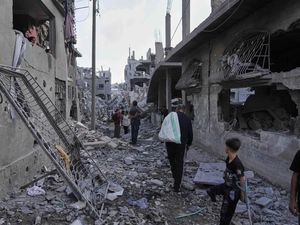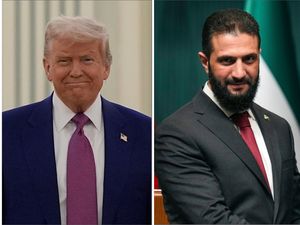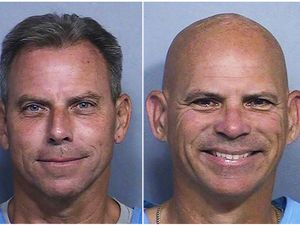Israeli tank fire kills two brothers in Gaza, health ministry says
The Palestinian Civil Defence confirmed it had recovered the two bodies.
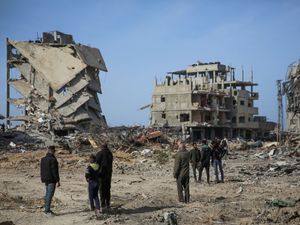
Gaza’s Health Ministry said Israeli tank fire killed two Palestinians near the southern border town of Rafah, days after a ceasefire in the war-battered territory took hold.
The ministry said on Thursday that Israeli shelling hit the Tel al-Sultan district west of Rafah, killing two brothers near their home.
It said the firing apparently targeted a residential building, without elaborating. The Palestinian Civil Defence confirmed it had recovered the two bodies.
The Israeli military, which has forces deployed at the nearby border between Gaza and Egypt, did not respond to a request for comment on the attack. Further details were not immediately available.
With Israeli shelling and bombardment otherwise halted since the ceasefire took effect on Sunday, rescue workers have intensified their attempts to find and recover bodies trapped beneath the rubble of destroyed buildings.
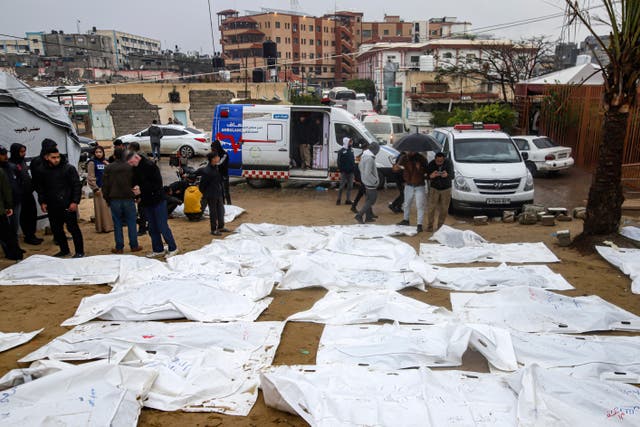
In some cases, the bodies have languished for weeks or months, inaccessible because of the danger.
The health ministry, which does not distinguish between civilians and militants, reported on Thursday that at least 120 dead bodies had been recovered and registered at hospitals across the Gaza Strip.
At Nasser Hospital in the southern city of Khan Younis, Palestinian families looked for dead relatives among the body bags laid out in a sandy courtyard.
The overall Palestinian death toll in Gaza exceeds 47,000 people, according to the ministry.
Elsewhere, Lebanese militant group Hezbollah said any delay in Israeli forces’ withdrawal from southern Lebanon “would necessitate a firm response from the state”.
Under the terms of the US and French-brokered ceasefire, Israeli troops are expected to pull out of Lebanon by Sunday. Israeli media has recently reported that Israel is seeking to postpone the completion of its withdrawal.
Hezbollah had warned it could resume rocket and drone fire if Israel failed to withdraw on time. However, in a statement on Thursday addressing these reports, the group called on the Lebanese state to take action in response to potential violations.
“We call on all parties, especially the Lebanese political authorities, to exert pressure on the countries sponsoring the agreement to ensure the final days of the deadline are monitored effectively,” Hezbollah said in a statement.
Under the ceasefire deal, Hezbollah and Israel are both supposed to withdraw from southern Lebanon by Sunday to allow the Lebanese army and U.N. peacekeepers to provide security.
Residents of Naqoura returned on Thursday to the southern town near the Lebanon-Israel border, which hosts the headquarters of the UN peacekeeping force, after Israeli forces withdrew from the area.
Long lines of cars, some waving Hezbollah flags, inched along the coastal road. The Lebanese Army and UN peacekeepers had reopened roads, cleared mines and removed unexploded ordnance from residential neighbourhoods.
Residents of the town were among over 1.2 million Lebanese displaced during the Israel-Hezbollah war.
Returning residents found their homes and businesses along the main road completely destroyed, some looted. Water and electricity networks lay in ruins. Mosques, health centres and the municipality building were damaged. Some residents sifted through the wreckage, searching for anything salvageable.
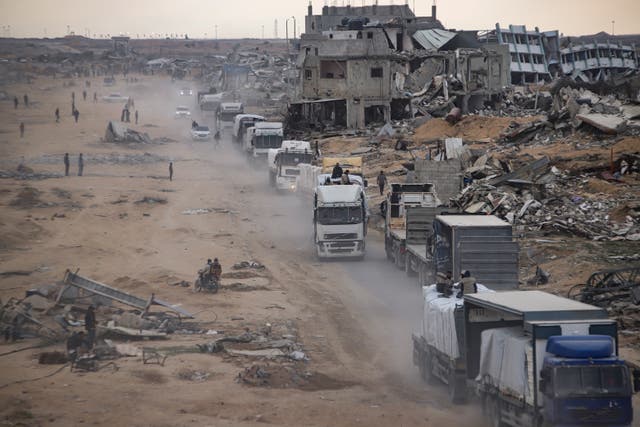
Meanwhile, the UN’s migration agency said it has sent its first convoy of trucks into the Gaza Strip since the ceasefire began, carrying materials for shelters as well as water, sanitation and hygiene supplies to provide relief for approximately 10,000 people.
The International Organisation for Migration said it sent trucks from Jordan to Gaza carrying 13,000 sleeping mats, 11,000 mattresses, 11,000 blankets, 10,000 pillows with pillowcases, 2,000 plastic sheets, and 1,200 hygiene kits.
Around 90% of Gaza’s population of 2.3 million people has been displaced by the war, and the United Nations estimated last month that 69% of the structures in Gaza have been damaged or destroyed, including more than 245,000 homes.

